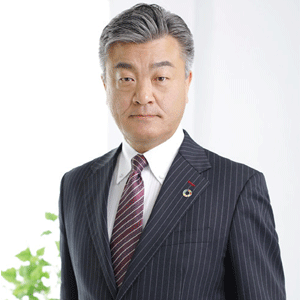
The Industrial Fasteners Manufacturers industry in Japan plays a crucial role in supporting various sectors, including automotive, construction, and electronics. Owari Seiki, a prominent company in this industry, has been instrumental in empowering this sector. With over 117 years of experience and strong partnerships with automotive OEMs, Owari Seiki has demonstrated exceptional product development capabilities and a commitment to delivering high-quality fasteners.
Their focus on meeting customer expectations, particularly in the evolving landscape of electrification and carbon neutrality, has contributed significantly to the growth and advancement of the Industrial Fasteners Manufacturers industry in Japan. Let’s learn more about the firm from Kei Okano, CEO, Owari Seiki.
How do you see global Industrial Fasteners market evolving in Japan? What are the major factors driving the growth of this market?
Owari Seiki’s fastener business primarily focuses on manufacturing small screws ranging from M6 to M4 in size. The rise of vehicle electrification in recent years has significantly transformed the business landscape. The demand for Owari Seiki’s small screws has increased substantially, driven by customer inquiries for components related to newly developed electrified units and battery cases for electric vehicles.
Currently, sales of fasteners for electrified vehicles and related parts constitute more than 10% of total sales, marking a significant growth from just one percent a decade ago. This trend indicates the potential for further expansion in the market. Seiki, with its main production base in Japan, is poised to play an increasingly significant role for OEMs and component manufacturers operating in Japan, aligning with the growing emphasis on local procurement.
What are the primary expectations of clients from manufacturers of fasteners? How do you ensure that these expectations are met?
Clients expect manufacturers to consistently produce products with excellent performance attributes (e.g., durability, corrosion resistance, fastening retention). The aim is to maintain this high level of quality for ten to twenty years without any variations. Moreover, the automotive industry has been actively engaged in weight reduction initiatives. As materials undergo changes to achieve weight reduction goals, the fastening requirements also evolve. Manufacturers are thus expected to be prepared and capable of offering a comprehensive range of fastening solutions that anticipate such changes in parts and materials.
This ensures that effective proposals can be made to customers promptly and efficiently whenever the need arises.
What is the position of your company in this industry segment?
Our company holds a prominent position in this industry segment. As a Tier 1 supplier to Toyota Motor Corporation, we have accumulated over 50 years of direct business experience. Additionally, we are an integral part of the leading fastener manufacturer with a track record of over 30 years of direct business experience with Mazda.
What factors distinguish your company from other players in this industry segment? How do you cater to a diverse range of demands?
We differentiate ourselves from other players in this segment based on several key factors: high quality, competitive pricing, and strong product development capabilities. Our wide range of products, including stepped bolts, earth bolts, B-Point, double screw nuts, and more, sets us apart.
When it comes to meeting diverse demands and expanding into the global market, our approach revolves around responding to the local production needs of Japanese automotive OEMs. While variations exist across regions, we adhere to the principle of producing high-volume fasteners in close proximity to overseas production bases of Japanese OEMs or Japanese component manufacturers. By maintaining a stable supply of products with ‘Japan Quality’, we strive to meet and exceed customer expectations.
What strategies have you implemented to advance your business and maintain a competitive edge? What accomplishments has the company achieved since its inception?
Owari Seiki, founded in 1906, initially specialized in manufacturing and selling high-end pillar clocks. Later, the company adopted a product strategy of creating a substantial appearance by increasing the thickness of the outer box. This led to the need for stronger screws, prompting the company to start manufacturing them internally, which laid the foundation for the current Owari Seiki fastener business.
In 1938, the company expanded into the military aircraft fastener industry, and after World War II, in 1952, it began full-scale production of fasteners for automobiles. Owari Seiki’s strength lies in its ability to leverage core technologies and adapt to changing times.
Owari Seiki is actively engaged in establishing new fastening technologies and proposing innovative products
In 2023, as the world moves towards carbon neutrality, automotive OEMs and parts manufacturers are focused on themes such as vehicle electrification, weight reduction, and the realization of a hydrogen society. Owari Seiki is actively engaged in establishing new fastening technologies and proposing innovative products to align with the emergence of electrification and the hydrogen society. Drawing on our tradition of effectively responding to environmental changes, we are prepared for the challenges and opportunities of the future.
Tell us about the overall journey of the company. Illustrate the growth it has observed in terms of revenue, clients, and geographical presence? What is the future roadmap for your company?
Over the years, the company expanded its operations, including the production of aircraft screws for military use in 1938 to automotive screws in 1952. The company underwent name changes and established various production bases and sales offices, catering to clients such as Toyota and Mazda.
Looking ahead to the future, the company envisions becoming a leading manufacturer in the field of small screws, exceeding customer expectations in fastening. This vision involves strengthening in-house production capabilities to reduce reliance on outsourcing. Owari Seiki aims to anticipate these changes in society and customer demands, actively contributing to the realization of carbon neutrality.
We use cookies to ensure you get the best experience on our website. Read more...